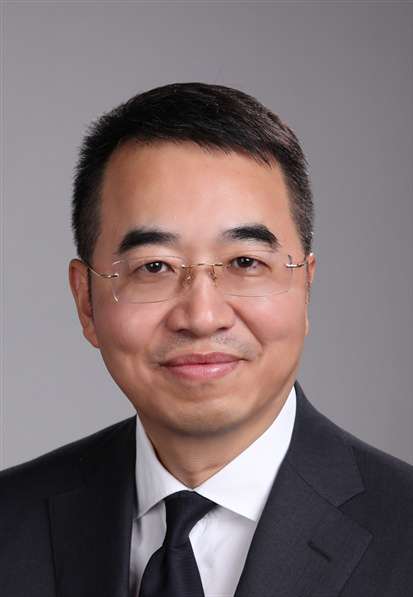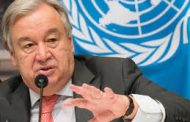Ma Xinmin Chinese Ambassador to Sudan
Spreading to over 210 countries and territories, COVID-19 pandemic has posed a grave threat to people’s health and also a severe challenge to the global public health security.
At this juncture, all countries share weal and woe, and no country can respond to the challenge on its own. Winning the battle against such a major infectious disease entails the solidarity and cooperation among all countries of the international community in building a community of health for all Countries need to uphold the vision of building a community of health for all. On the occasion of the 7th anniversary of when the idea of building a community of a shared future for mankind was officially put forward, Chinese President Xi Jinping unveiled the initiative of building a community of health for all, a concrete
concept for public health that further crystallizes the idea of a community of
a shared future for mankind.
The battle against the coronavirus disease, the
common foe of humanity that threatens the health and safety of all, requires global collective efforts. The unprecedented pandemic has caused more than four million infection cases, including over 200,000 deaths. The fact that no country is spared from the pandemic is a strong indication that all countries and their peoples are a community of health sharing weal and woe.
In the face of the virus, countries in the international community need to bear in mind the overall interests of the global community and all mankind, instead of their own interests, and work together to ensure common health and public health security everywhere. The initiative of building a community of health for all stresses the supremacy of all peoples’ safety and health and disapproves of overriding the safety and health of the vast majority of people to serve the political and economic interests of small groups of people; underscores the importance of safeguarding the overall public health security of the global community, instead of that of particular or a few countries; and pursues unity and cooperation for mutual benefit and win-win results, rather than playing the zero-sum game.Countries need to take concerned actions to jointly tackle global health issues. In the face of a global public health crisis, no country is capable of responding to it alone. Instead, it entails the synergy from the international community to improve the rules and order of global public health. Global public health issues need to be dealt with by countries through collaboration and consultation. Countries must improve information-sharing and policy and action coordination and develop science-based and proper countermeasures together, under a thorough global joint prevention and control mechanism. All countries are obligated tosafeguard global public health security and ensure peoples’ well-being and health. It is incumbent on the international community, particularly major countries and others with the capabilities, to provide necessary assistance to those countries where the public health systems are too weak to effectively handle the public health crisis and safeguard their peoples’ safety and health. Additionally, constant support needs to be given to the United Nations (UN) and the World Health Organization (WHO) in playing their core role in global public health governance and to other regional international organizations and
international mechanisms in playing an active part in joint pandemic response.
It is imperative to further refine the rules for global public health governance and, most importantly, improve the laws on public health early warnings, public health crisis management and disaster relief.
The remarks made by Chinese President Xi Jinping at the Extraordinary G20 Leaders’ Summit on COVID-19 points the way for the global joint fight against the virus and the important to the global public health governance system. All countries need to remain committed to the common goal of achieving public health security in all countries and safeguarding the life and health of their peoples. The COVID-19 pandemic is a common challenge to
mankind, regardless of National boundaries or ethnic groups, and has a bearing on the safety of all countries and peoples. A country can ensure safety and
health on its own land only when common security and health are achieved. No
country will remain safe and sound by dealing with the challenge on its own or talking a unilateral or beggar-thy-neighbor approach, and find shelter through egotism. In the current situation, the global fight against the virus will not be
successful if the spread of the coronavirus disease is not brought under control in Asian and African developing countries. Confronted with the raging pandemic,
no country in the global community is immune to its impacts. Hence, all must
support and help each other for common good. Countries will stand to overcome
the challenge through cooperation and lose from confrontation.
At such a moment, it is time for the international community to cooperate, act in unity and fight for mutual benefit and win-win results, instead of confrontation, blame shifting, finger-pointing and win-lose. Solidarity and cooperation among countries in fending off the threat posed by the COVID-19 and tiding over the difficulties is the right way forward to safeguard public health security and people’s life and health in our own country as well as in other countries of the world.
As one saying goes, “success comes to those who share in one purpose”.
Facing the COVID-19 crisis, China has been upholding the vision of building a community of a shared future for mankind and multilateralism, working hard on promoting international cooperation in collective response, and providing assistance as much as we can with
epidemic prevention and control in other countries, doing its best and making important contributions to the global anti-epidemic battle. With concrete actions, China demonstrates that international cooperation is the most powerful weapon to win the global struggle against the COVID-19 and joining hands in building a
community of health for all is the right choice for the global community.









